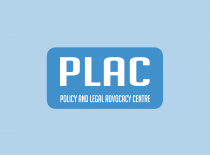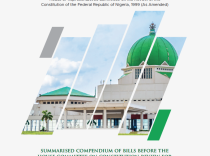The Senate at its plenary session of Wednesday, 6 November 2019 concluded debate on the Finance Bill, 2019 (SB 140) and referred same to its Committee on Finance. The Bill proposes an increment to tax and fiscal laws to ensure adequate funding of the 2020 Budget.
Leading the debate on the Bill, Senate Majority Leader, Sen. Abdullahi Yahaya (APC: Kebbi) stated that the objectives of the Bill include:
- Promoting fiscal equity by mitigating instances of regressive tax invasion;
- Reforming domestic tax laws to align with global best practices;
- Introducing tax incentives for investment in infrastructure and capital markets;
- Supporting small businesses in line with the on-going reform on the ease of doing business;
- Raising revenues for government, by various fiscal measures, including a proposal to increase the rate of Value Added Tax from 5% to 7.5%.
Sen. Yahaya explained that additional funds from the increment of taxes would be used to fund healthcare services, educational and infrastructural programs. In addition, 85% of all Value Added Tax (VAT) revenues will be allocated to both State and Local Governments. However, he noted that provisions of the Finance Bill would mean consequential amendments to the following tax laws:
- Company Income Tax Act, 2004 to broaden domestic taxation earned by non-resident companies in Nigeria through dependent agents and online market platforms. This measure was proposed by the Organization for Economic Cooperation and Development (OECD);
- Value Added Tax Act, 2007 to improve the efficiency of Nigeria’s VAT system, expand VAT coverage by addressing critical issues such as taxation of digital economy, VAT registration thresholds etc;
- Customs and Excise Tariff (Consolidation) Act, 2004 to subject certain imported goods to excise duties in a similar manner with locally manufactured counterparts;
- Personal Income Tax Act, 2007 (as amended) to provide clarity and efficiency in the administration of individual income taxes in Nigeria;
- Capital Gains Tax Act, 2007 to prevent abuse of the provisions of the Act on group restructuring.
- Stamp Duties Act, 2007 to increase revenue generation from duties on electronic stamps.
- Petroleum Profit Tax Act, 2004 by removing the tax exemption granted for dividends or income received from companies charged under this Act to increase generated revenue.
In his submissions, Sen. Yahaya said that the Bill had been formulated to meet the critical needs of the country by intensifying revenue-generating efforts and ensuring that all bottlenecks associated with fiscal and tax policies are adjusted. It will be recalled that President Muhammadu Buhari submitted the Finance Bill, 2019 along with the 2020 Appropriation Bill in a Joint Sitting of the National Assembly on Tuesday, 8 October 2019.





